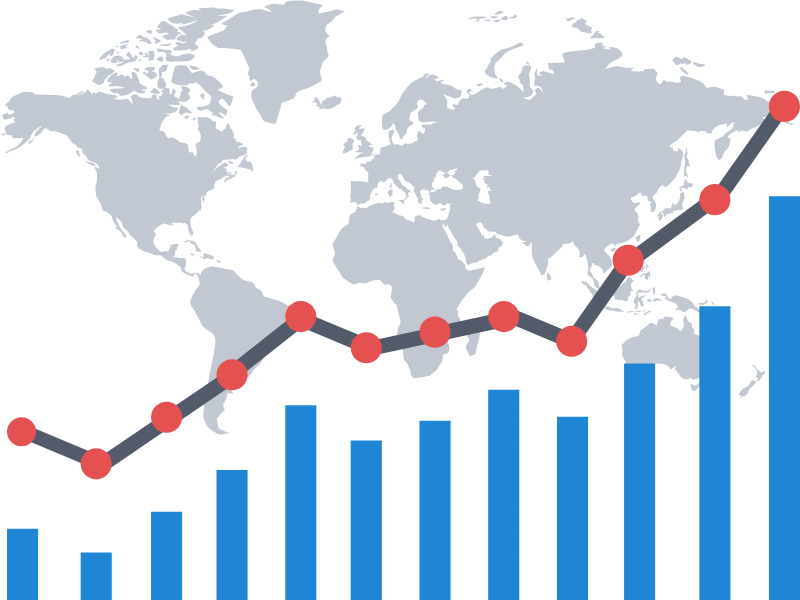Inflation is an increase in the general price level of goods and services in an economy over a period of time. When the general price level rises, each unit of currency buys fewer goods and services; consequently, it reflects a reduction in the purchasing power of money – a loss of real value in the medium of exchange and unit of account within an economy. A related measure is the Consumer Price Index (CPI), which measures the change in the price level of a market basket of consumer goods and services purchased by households.
A rate of of 2% or 3% is good for the economy since it encourages individuals to borrow more money or buy more goods since lower inflation also results in lower interest rates. However, consumers will be impacted by inflation. Consumers find it difficult to afford the most basic necessities in daily life due to high costs for everyday goods, which will undermine a market economy’s ability to operate efficiently.

Causes
A variety of factors can cause inflation, including:
Demand-pull Inflation: This occurs when demand for goods and services outpaces supply, leading to higher prices. This can happen during periods of economic growth, when consumer spending increases and businesses raise prices to maintain profits.
Cost-push inflation: This occurs when the cost of production increases, leading businesses to raise prices, This can happen when the prices of raw materials or labor increase, or when there disruptions, such as natural disaster or wars.
Expectation: Consumer and businesses may anticipate that prices will increase in the future and adjust their behavior accordingly. For example, if workers expect high inflation they may demand higher wages, which can push up prices.

Inflation in Malaysia
Globally, central banks work to reduce inflation in order to maintain price equilibrium and promote long-term expansion. Inflation weakens purchasing power, depreciates local currency, and creates economy instability. Since Malaysia gained freedom, its economy has experienced a number of internal and external shocks. Apart from that, Malaysia has long struggled with fiscal deficits, trade deficits, rising prices, and decline in manufacturing capacity. Although the rate consistently exceeded GDP growth for many years, Malaysia has only occasionally experienced two-digit inflation.
According to a Reuters survey, economist predicted that headline inflation would drop from 4% y-o-y in October to 3.9% y-o-y in November. Meanwhile, the economist Manokaran Mottain mentioned the headline inflation rate may fall below 4% threshold in November as supply chain problems are easing and company input costs are dropping. However, in December 2022 and the following months will experience the greatest decline in prices.
In October 2022, Malaysia reported core inflation of 4.1% y-o-y, which was higher than the headline for the month. The CPI group represent food and non-alcoholic beverages increased by 7.9% in October, which was the largest driver inflation. Additionally, the transport sector saw an increased of 7.7% followed by the restaurant and lodging industries (6.8%), furnishing, domestic equipment, and household maintenance (4.1%), leisure and services and culture (3.4%). Bank Negara allude Malaysia’s core inflation that measures underlying inflation, is anticipated to average closer to the higher end of forecast range 2% – 3% in 2022. Fitch Ratings forecast that Malaysian inflation will remain modest this year at 2.8%. This will helped in price controls and subsidies.

